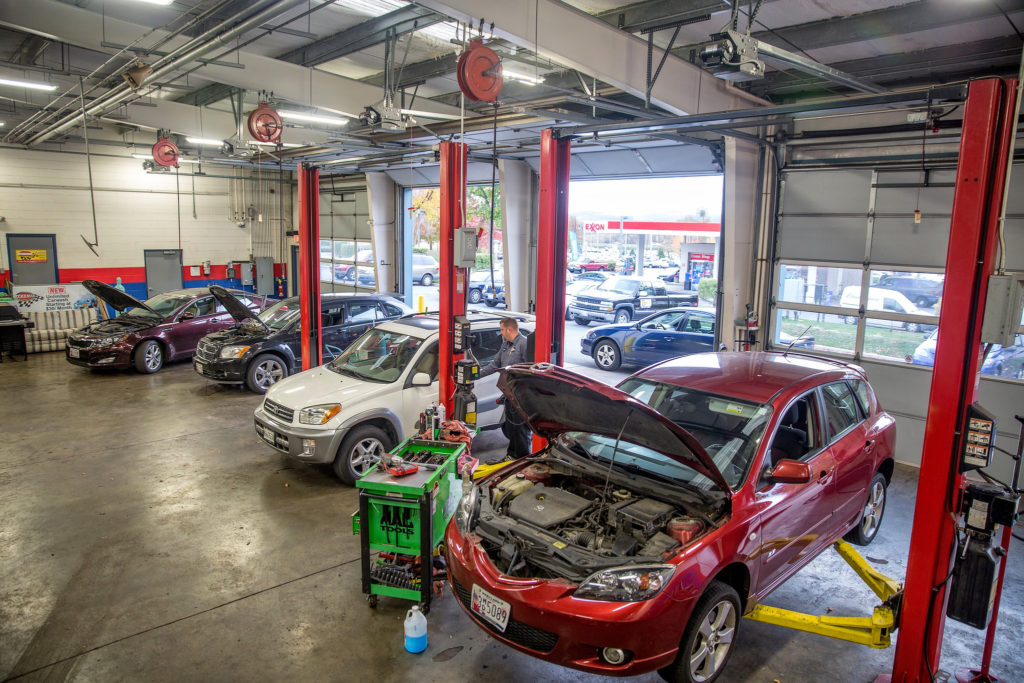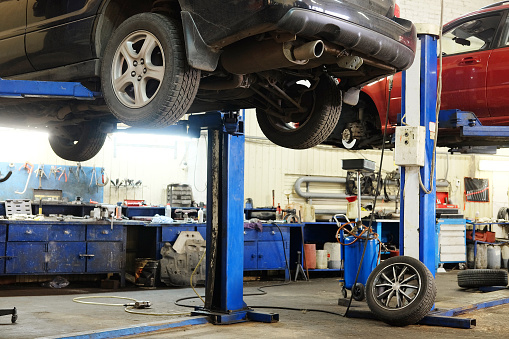All Categories
Featured
A properly maintained engine is the key to your cars and truck's long life and optimal performance. Normal engine tune-ups not only improve gas performance yet additionally decrease the probability of unanticipated malfunctions. Whether you're a vehicle enthusiast or a person that merely intends to avoid costly repair work, these engine tune-up pointers will keep your automobile running like a dream.

- Change the Glow Plugs. The ignition system fire up the air-fuel combination in your engine, and their efficiency directly affects engine performance. With time, ignition system can wear out, causing misfires, reduced gas economic situation, and sluggish acceleration.
Throughout a tune-up, evaluate and replace ignition system if they show signs of wear, such as residue accumulation, corrosion, or fractures. Depending on your car, ignition system may need to be changed every 30,000 to 100,000 miles.
- Check the Ignition System. Your cars and truck's ignition system, that includes the ignition coils, distributor, and wires (if applicable), is in charge of delivering the spark that powers your engine. Damaged ignition components can create starting concerns and rough engine operation.
Look for harmed or used components and replace them throughout your tune-up. Guaranteeing a healthy and balanced ignition system will certainly improve engine integrity and performance.
- Clean or Replace the Air Filter. A tidy air filter permits your engine to "take a breath" appropriately by ensuring a consistent circulation of clean air. Gradually, dust and particles can obstruct the filter, decreasing airflow and affecting fuel efficiency.
Check the air filter during a tune-up and change it if it's filthy. For vehicle drivers in messy or contaminated areas, air filters might need to be altered much more frequently.
- Inspect and Tidy the Fuel System. The gas system, including the fuel injectors, fuel pump, and fuel lines, can accumulate deposits gradually, lowering fuel distribution and engine performance. Utilize a gas injector cleaner or have your system professionally cleaned during a tune-up to recover correct performance.
Routinely maintaining your gas system ensures far better combustion and optimizes your engine's performance.

- Adjustment the Engine Oil and Oil Filter. Engine oil is necessary for lubrication, air conditioning, and minimizing rubbing between moving components. With time, oil degrades and builds up particles, shedding its effectiveness.
Throughout a tune-up, change the engine oil and oil filter. Following the supplier's recommendations for oil kind and adjustment intervals is vital to keeping your engine in optimum condition.
- Evaluate the Belts and Pipes. The belts and hoses in your engine compartment play essential roles in powering components like the generator, water pump, and air conditioning system. Use and tear gradually can bring about splits, fraying, or leaks.
Inspect the problem of belts and tubes throughout your tune-up and replace any type of that reveal signs of damages. Proactively addressing these concerns can prevent pricey repair services and unanticipated failures.
- Examine the Battery and Electric System. A weak or stopping working battery can leave you stranded. During your tune-up, examination the battery's voltage, evaluate the terminals for deterioration, and ensure the links are tight.
Furthermore, have the generator and starter examined to guarantee they're working appropriately. Dealing with electrical system problems early can conserve you from troublesome shocks.
- Inspect the Cooling System. The cooling system prevents your engine from overheating, which can cause serious damages. During a tune-up, check the radiator, hoses, and water pump for leakages or use.
Flush and replace the coolant if it's filthy or has exceeded its recommended life span. Appropriate cooling system upkeep helps your engine run within its optimal temperature variety.
- Address Dashboard Warning Lights. Modern automobiles are geared up with sophisticated diagnostic systems that illuminate cautioning lights when issues arise. If your dashboard presents any advising lights, such as the check engine light, resolve them throughout the tune-up.
A specialist technician can use diagnostic devices to identify and fix the problem, stopping tiny concerns from rising.
- Maintain Your Engine Clean. A tidy engine runs cooler and is much easier to examine for potential issues. Get rid of dirt, grease, and crud from your engine bay during a tune-up. Use a degreaser and a gentle brush for cleansing, and avoid spraying water straight on electric components.
Final Thought: Tune-Ups Are the Trick to Engine Longevity. Normal engine tune-ups are a financial investment in your vehicle's health, efficiency, and effectiveness. Whether you're taking on the tune-up yourself or taking your automobile to a relied on mechanic, adhering to these tips will keep your engine running at its finest and help you prevent unexpected repair services.
Latest Posts
Find Montclare Auto Repair’s Most Popular Auto Repairs and Why Drivers Choose Them
Shield Your Home with High Quality Residential Roof
Uncover Budget-Friendly Auto Repairs with Montclare’s Exclusive Service Specials
More
Latest Posts
Find Montclare Auto Repair’s Most Popular Auto Repairs and Why Drivers Choose Them
Shield Your Home with High Quality Residential Roof
Uncover Budget-Friendly Auto Repairs with Montclare’s Exclusive Service Specials
